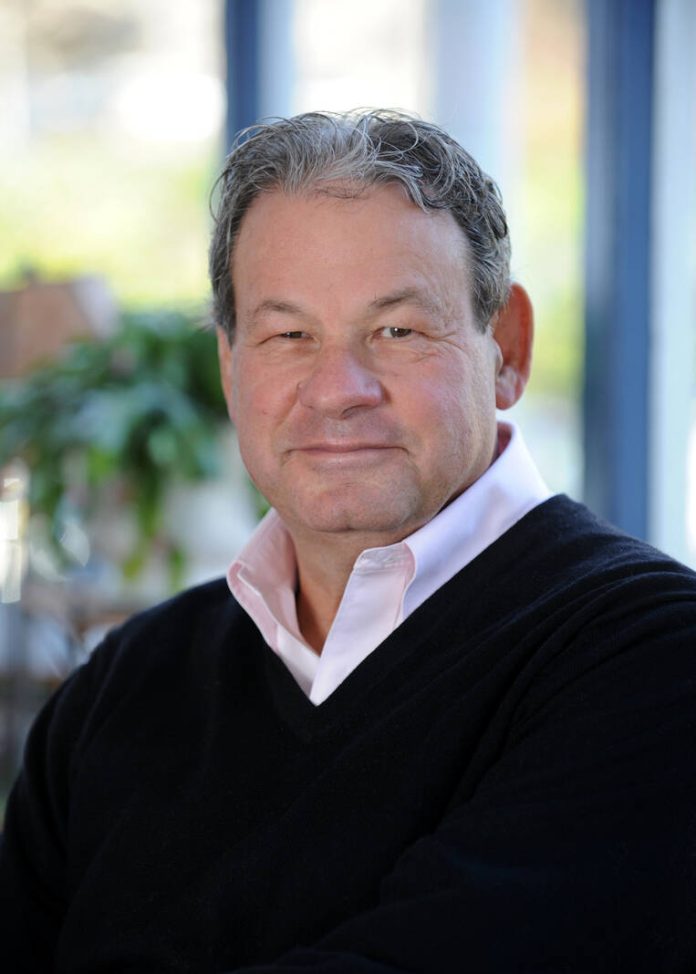Marion, Kansas (population 1,922) is right smack in the middle of nowhere, unless you count Cottonwood Falls (population 851), 27 miles to the east. But this tiny farming and cattle town is now on the map: ground zero for a titanic battle over freedom of the press.
When the local weekly, the Marion County Record, started digging into the checkered history of the new police chief, Gideon Cody, he struck back. After obtaining a search warrant, the chief led a raid on the Record’s offices, plus the home of its owner and publisher, and seized computers, cellphones and files.
“The raid was so unusual, and so alarming in its implications for the news media, that it quickly exploded into an international story,” reported the Washington Post.
Fortunately — stunningly — the media won this time. The Marion County attorney, Joel Ensey, ruled that there was “insufficient evidence” to justify the warrant and ordered Cody to return everything he had taken from the paper.
The owner and editor, Eric Meyer, drew the right conclusion from this incendiary episode, telling The New York Times, “If we don’t fight back, and we don’t win in fighting back, it’s going to silence everybody.”
Still, this outcome represents a small victory in a much larger war. When it comes to press freedoms, we are living in the Age of Trump, a man who has made unrelenting assaults on the news media a staple of his political strategy. Any criticism is “fake news.” Reporters are “scum.” He even praised a political candidate for body slamming a reporter as “my type.”
David Kaye and Edison Lanza, two experts on free expression appointed by the United Nations, issued a report several years ago, saying that Trump’s attacks “are strategic, designed to undermine confidence in reporting and raise doubts about verifiable facts.” And they added, “We are especially concerned that these attacks increase the risk of journalists being targeted with violence.”
Is it any wonder that folks like Gideon Cody feel free to invade and intimidate any journalists who dare to hold them accountable? We can’t read Cody’s mind, but his actions speak for themselves. They scream, “Trump!” And he is not alone.
Gregory Magarian, a law professor at Washington University in St. Louis, described this alarming trend in The New York Times: “A government raid on a newspaper’s office and its publisher’s home, with police seizing reporters’ computers and phones, sounds like a lurid tale from Vladimir Putin’s Russia. This may have been an extreme case, but the U.S. Press Freedom Tracker documents dozens of government (as well as private) offenses against American journalists every year — not just searches and seizures but also arrests, physical assaults by the police, prior restraints, intimidation and improper denials of access to locations and information.”
These incidents take a toll even when the press eventually wins. They can have a chilling effect, causing editors and reporters to think twice about challenging powerful figures, especially at a time when declining revenues threaten the very existence of local news outlets and jeopardize their ability to afford legal defenses.
Jon Allsop, writing for the Columbia Journalism Review, warns that the Marion attack “and others that are similar, if less dramatic … add up to a situation in which local officials feel emboldened to take extreme anti-press measures, local residents are less likely to care, and journalists are less likely to have the resources to fight back — or to do hard-hitting work at all.”
What can be done? One critical move is to reverse the “chilling effect” dynamic — make sure tinhorn tyrants like Cody think twice about repressing the press. And social media can help equalize the fight.
Public officials like police chiefs once had vast ability to control information, manipulate public opinion and insulate themselves from scrutiny. But not today. Private individuals such as Meyer and his supporters now have platforms of their own to fight back, raise money and provide an alternative view of reality.
“If it weren’t for the outpouring of support we got on this, we’d probably be out of business by now,” Meyer told local TV reporter Jessica McMaster.
Kansas, like 47 other states, has a shield law that is supposed to protect journalists from rogue cops and prosecutors. Cody could be facing both criminal and civil exposure, and the Marion paper should press charges as hard as they can, sending a message to others who are tempted to tamper with press freedoms.
Meyer should have the last word here: “You cannot let bullies win.”
Steven Roberts teaches politics and journalism at George Washington University. He can be contacted by email at [email protected]. Send comments to [email protected].





